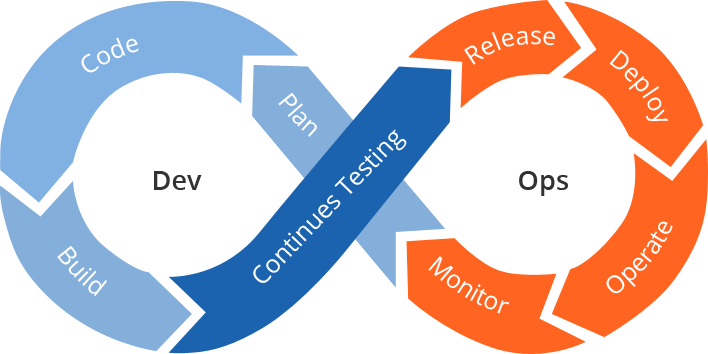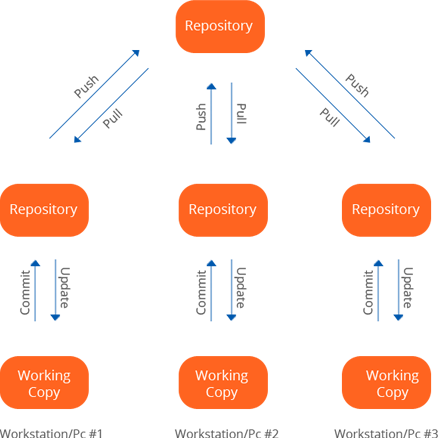
Enterprise DevOps Services
Agile, Secure, and Scalable: Supercharge Your Enterprise with DevOps
Get a QuoteImprove collaboration between all stakeholders from planning through delivery & automation of the delivery process
DevOps is combination of TWO words Development and Operations. It allows single team to manage entire software application development life-cycle i.e. Development, Testing, Deployment and Monitoring. Main goal is to decrease the duration of software development life-cycle while delivering features, fixes and updates quickly in close synchronization with business objective. This approach provides superior quality of software developed quickly and with more reliable.
How does DevOps Function
Life Cycle & Tools
Life-cycle consists of FIVE stages i.e. Continuous Development, Continuous Integration, Continuous Testing, Continuous Deployment and Continuous Monitoring.
Continuous Development
In this phase, involves project planning and coding of the software. DevOps has various version control tools by which you can maintain your project code. Git, SVN, Mercurial, CVS, Jira are few Version control tools.

Life Cycle
Distributed Version Control System Server
 Continuous Integration
Continuous Integration
In this stage, continuous code is getting updated & new functionality is begin integrated with existing software code. Changed code verifies that there are no bugs during runtime. Team ensures test the changes and checks how software reacts when new functionality has been updated. Tool like Jenkins is used for Continuous Integration. It helps to pull latest code of revision, and produce build that will finally deploy to production servers.
 Continuous Testing
Continuous Testing
In this stage, newly developed software & functionality is continuously tested for errors/bugs. Tools like TestNG, JUnit, Selenium, etc. are used for automation testing.

 Continuous Deployment
Continuous Deployment
In this stage, you will deploy software code on the production servers. For achieving Continuous Deployment, we will require tools for Configuration Management such as Chef, Puppet and Ansible & Containerization such as Docker and Vagrant etc.
 Continuous Monitoring
Continuous Monitoring
In this stage, Operations team aim in improving quality of software by monitoring performance, user activities for bugs or improve behavior of the software. Nagios, Splunk, ELK Stack, New Relic etc. using this tool continuous monitor application & servers will be achieve and closely you will be able to check the health of the software proactively.
Control System Server
Benefits of CI/CD

Continuous Integration

Continuous Delivery

“The purpose of a business is to create a customer who creates customers”
Let’s get startedDo you want to connect with us?
![]()
Confidential & Secured
- This form is Secured with Validations.
- Your Privacy is our utmost priority.
- We will not reveal any of your info.
- It will be used to contact you for Project purpose only.


 nprocure
nprocure